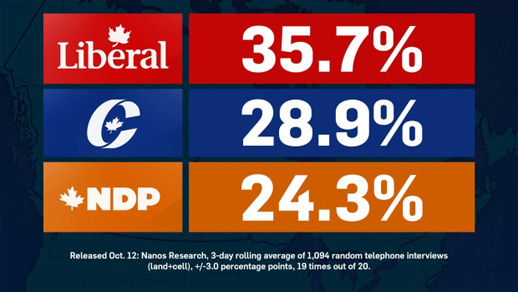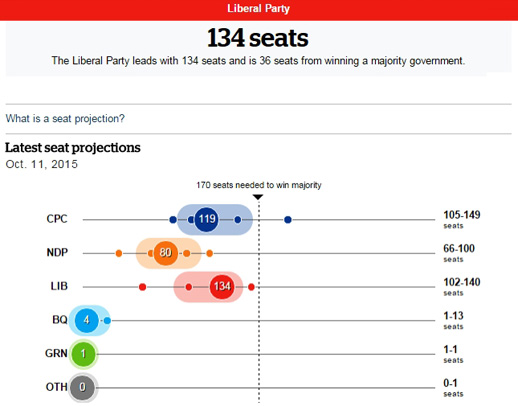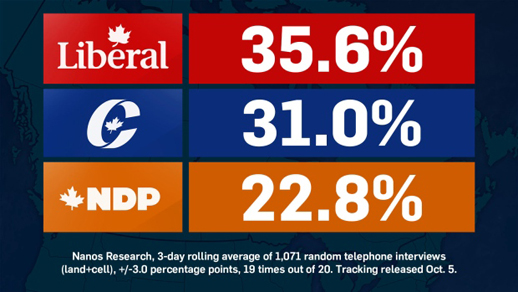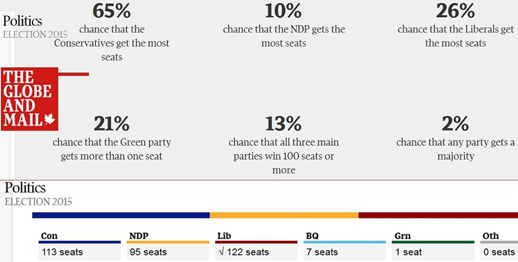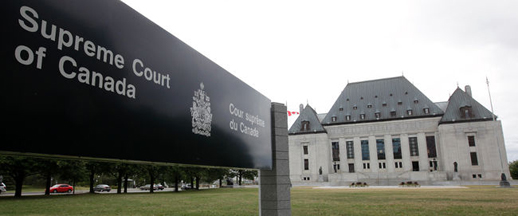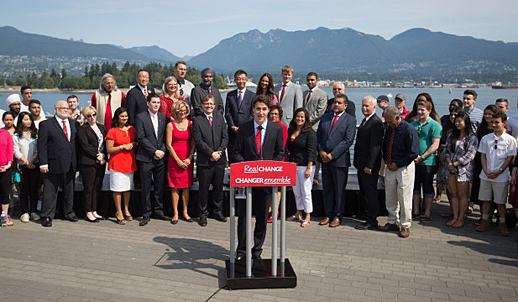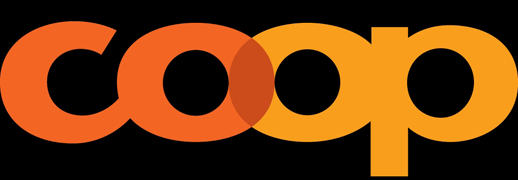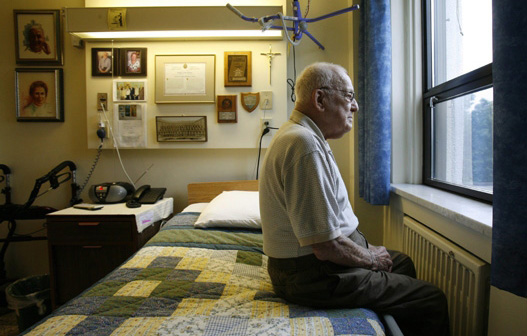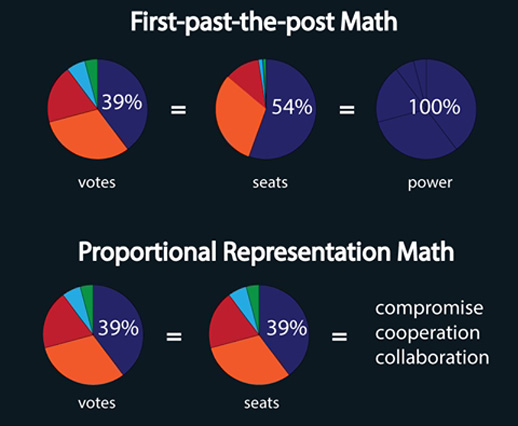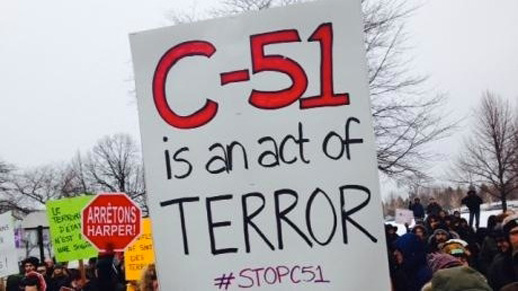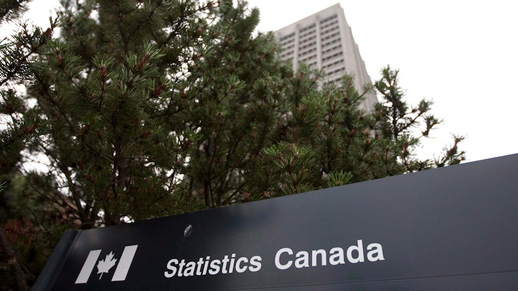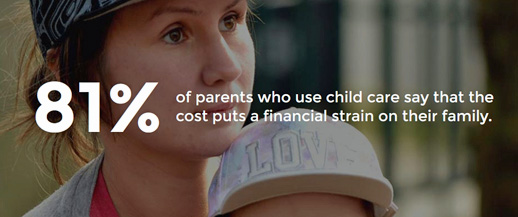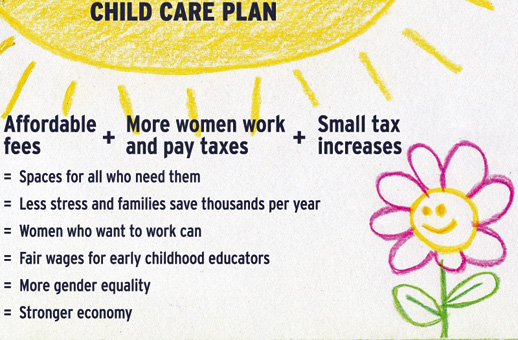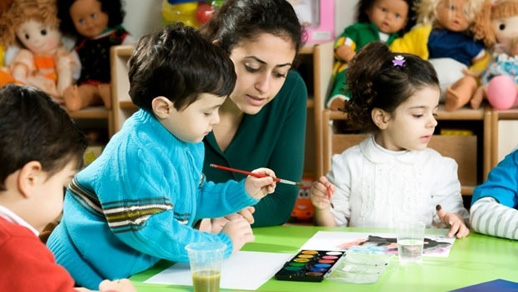
For those who may not realize this fact: VanRamblings is a partisan blog.
Although we have friends in all of the federal political parties — and respect their individual right to support the party, and candidates, of their choosing — VanRamblings remains firmly in the tank for the NDP, believing as we do that it is Tom Mulcair’s federal New Democratic Party that will provide the best government for all the people of Canada going forward into the future.
Today’s column, then, offers an explanation of where VanRamblings’ support arises, the issues about which we are most passionate, and how it is that the NDP — and Tom Mulcair’s New Democrats alone — present the opportunity for meaningful change, change that will impact on the quality of life of all Canadians, in the process creating a fairer & more just society.

1. Affordable housing, social housing, and housing co-operatives. Housing co-operatives are a made-in-Canada solution to social and affordable housing, a creation of the defacto 1972-74 Trudeau Liberal — David Lewis NDP “coalition”: self-administered, not-for-profit housing residents actually own (although residents must sell their unit back to the Co-operative should they move), where members pay no more than 35% of their income for housing, where one-third of members receive a deep subsidy on the low-end market housing rate, one-third receive a partial subsidy, and one-third of residents pay a low-end market housing charge.
Early on in Campaign 2015, the federal NDP committed to renewing the Canada Mortgage and Housing operating agreements that govern housing co-operatives, providing subsidy for members in need; without implementation of this New Democratic Party commitment, thousands of Canadians risk being thrown out onto the street — a Conservative party eventuality Canadians of conscience cannot allow to occur.
VanRamblings wrote about housing co-operatives during 2014’s Vancouver municipal election; as background on the history and contribution of housing co-operatives to our community, the column is worth a read.

2. Lifting our seniors out of poverty. Statistics Canada data shows that 12 percent of seniors live in poverty, amounting to almost 600,000 people. Seniors living alone are particularly hard pressed financially, with more than 1 in 4 single seniors, most of whom are women, living in poverty. Twelve million working Canadians do not have workplace pension plans; Canadians are increasingly unable to save sufficiently for their own retirement.
Tom Mulcair’s New Democratic Party has committed to boosting the Guaranteed Income Supplement (GIS) by $400 million annually, a necessary step that will lift seniors out of poverty. “No one should have to grow old in poverty, insecurity or isolation,” Mulcair has said. “The NDP will ensure that all seniors live with dignity, with the care and support of all Canadians.”

3. Creating a North American environmental policy. From the outset of the current federal election campaign, Tom Mulcair and the NDP have made it clear that this December at the United Nations Climate Change Conference, working with President Obama, the two nations will present a unified North American environment and climate change policy that will not only cut greenhouse gas omissions, but as well …
- Adopt tougher rules that will work to help prevent oil spills;
- Adopt a pan-continent cap-and-trade mechanism to fight climate change;
- Seize new opportunities for clean energy that will effectively cut carbon pollution, reduces risks to our communities and coastlines, and establish an assessment and review process that Canadians can put their trust in once and for all;
- Invest in clean energy over subsidizing fossil fuel;
- Implement a ‘polluter pays’ principle; and …
- Address the issue of the transportation of dangerous goods, and boost the government’s preparedness for “a major environmental disaster.” Citing the Lac-Mégantic rail disaster, Tom Mulcair said “it’s time we had rail safety standards that Canadians can trust.”
As the Québec Minister of Sustainable Development, Environment and Parks from 2003 until 2006, in the Liberal government of Premier Jean Charest, Tom Mulcair launched Québec’s Sustainable Development Plan, tabling a draft bill on November 25, 2004. Also included was a proposed amendment to the Québec Charter of Human Rights and Freedoms to create a new right, the right to live in a healthy environment that respects biodiversity, in accordance with the guidelines and standards set out in the Act.
Tom Mulcair’s Sustainable Development Plan was based on the successful European model and was described as the most progressive environmental policy in North America. Following a 21-city public consultation tour across the province, Tom Mulcair’s Sustainable Development Act was unanimously adopted by the National Assembly of Québec, in April 2006.

4. Decriminalization of marijuana. On October 20th, should the New Democratic Party become the government of Canada, as Prime Minister-elect Tom Mulcair will sign an order-in-council that will immediately decriminalize the use of marijuana across Canada; further, Tom Mulcair has said that by Christmas 2015, all Canadians currently serving prison sentences for simple pot possession will be released from incarceration.
Since the Stephen Harper came to power in 2006, the Conservatives have slammed the door on the previous government’s plans to reduce or decriminalize marijuana penalties; arrests for pot possession have jumped 41 per cent. In the past 10 years, police report more than 650,000 marijuana-related arrests, roughly equivalent to the population of Coquitlam, Burnaby, New Westminster, Port Moody, Bowen Island, Abbotsford, Duncan, Courtenay, Fort St. John, Nelson, Creston, Vernon and Oliver, British Columbia combined.
Justin Trudeau’s Liberals propose to legalize marijuana in Canada, which would engender an arduous and cumbersome multi-year legislative and administrative process that in all likelihood would never pass Parliament, or be accepted by the provinces. As is most often the case, Liberals promise a great deal during an election, but deliver on very little once in government.
Drug legalization and decriminalization are not the same thing. In the case of marijuana, decriminalization would remove the criminal and monetary penalty for possessing it for personal use, but dealing the plant could still land you in jail. On the other hand, legalization would remove criminal penalty and implement control and distribution by the government. There is no country across the planet that has legalized drugs altogether, whereas many countries have successfully implemented marijuana decriminalization.

5. Implement proportional representation in the 2019 election. Early on in a Tom Mulcair-led New Democratic Party government, the NDP would introduce legislation that would implement proportional representation, rather than the current “first past the post” electoral system, for the 2019 federal election. The graphic above offers evidence as to what Parliament would have looked like after the 2011 election had proportional representation been in place. Canada is one of the few countries in the world that has not introduced, and passed, such legislation.

6. Repeal Bill C-51. On February 23, 2015, the Stephen Harper Conservative government introduced Bill C-51 — The Anti-Terrorism Act — which passed second reading in the House of Commons with a vote of 176-87, all members of both the Liberal and Conservative parties voting in favour. Only Tom Mulcair’s New Democratic Party held out, all NDP MPs voting against a bill that could be used to target environmental activists and aboriginal protesters, or any other form of protest without an official permit or court order. An RCMP report names Greenpeace in language that would permit the Canadian government to act against this respected Canadian-founded, now international environmental organization.
In a column published in the Globe and Mail on March 6th of this year, Daniel Therrien, Canada’s federal Privacy Commissioner, wrote that the bill fails to protect the safety and privacy of Canadians, granting excessive and unprecedented powers to government departments and agencies, “opening the door to collecting, analyzing and potentially keeping forever the personal information of all Canadians,” including every instance of “a person’s tax information, personal business and vacation travel.”
Only a Tom Mulcair-led New Democratic Party government would repeal Bill C-51, while implementing new security legislation that would protect the valued privacy interests of Canadians while keeping all Canadians safe.

7. Reinstate the long-form census. The elimination of the mandatory long form census by Stephen Harper’s government represents one of the most regressive pieces of legislation passed by the Conservatives since they were first elected in 2006, compromising the ability of the private sector and government to plan for the needs of Canadians.
Business organizations — you know, such well-renowned left-wing organizations as the Canadian Chamber of Commerce, Canadian Federation of Independent Business, Canadian Economics Association, Martin Prosperity Institute, both the Vancouver and Toronto Region Boards of Trade, Restaurants Canada and the Canadian Association of Business Economics — have told the government that the elimination of the mandatory long form census, “makes it harder to pinpoint trends such as income inequality, immigrant outcomes in the jobs market, labour shortages and demographic shifts.” Businesses say it’s become harder to know where to locate stores, tailor marketing and understand local markets. Meanwhile, Crown corporations and private-sector companies cannot properly predict labour market trends and housing demand.
Robert Fairholm, a respected economist and partner at the Milton, Ontario-based Centre for Spatial Economics continues to express concern about the elimination of the mandatory long form census, stating …
“We need good data. It’s a multibillion-dollar mistake to eliminate the good quality long-form census, the decision serving only to create uncertainties and distortions in the Canadian market … I think of these data as a public good … that provides a benefit to all Canadians, either directly or indirectly.”
We are losing a generation of data in terms of understanding and addressing labour market and other issues, as we hobble researchers and policymakers; it’s disastrous for the economy, and an outrage for all of us.

8. Honour our veterans. Over the past 10 years, first under Jack Layton, and for the past four years under Tom Mulcair, the New Democratic Party has consistently urged Stephen Harper’s Conservatives to recognize its obligation to past and present members of the Canadian Armed Forces, believing that a covenant exists between the Canadian people and the government to provide equitable financial compensation and support services to past and active members of the Canadian Armed Forces who have been disabled or have died as a result of military service, and to their dependents, which the government is obligated to fulfill.
“Canadians recognize there is a moral, social, legal and fiduciary obligation to care for the men and women who have bravely served in Canada’s military,” says NDP MP Fin Donnelly (New Westminster-Coquitlam). “We are ready to demonstrate our commitment to stand for veteran’s rights.”
With egregious mean-spiritedness, Stephen Harper’s Conservatives have eliminated pensions for returning soldiers in need, instead offering a one-time payment of $40,000. The Conservatives closed veteran’s offices across Canada, and virtually eliminated support services for soldiers returning from Afghanistan, Iraq and Syria, the Tories finally capitulating to public outrage by offering veterans $50 million in support services — it took the CBC to discover that the $50 million would by doled out at the rate of $1 million dollars per year over fifty years!
As NDP Veteran’s Affairs critic Peter Stoffer told the House of Commons …
“All political parties voted for the New Veterans Charter in 2005, the Conservatives’ implementation of the charter has short-changed essential pension and support services that veterans have earned and rightfully deserve. Denying our obligation to veterans is not only shameful, it is unacceptable.”
Only Tom Mulcair’s NDP has committed to widening access to quality home care, long-term care and mental health care services for veterans, pensions and other vital supports, as well as the re-opening of the nine frontline Veterans Affairs offices closed by the Stephen Harper government.

9. Childcare. The NDP is the only Canadian political party that has committed to a national childcare programme; Justin Trudeau’s Liberals are opposed — why would “Mr. Grew-Up-With-a-Silver-Spoon-in-his-Mouth,” “Mr. I charge $20,000 for my speaking engagements, and earned $277,000 last year speaking across the country, and why wouldn’t I charge, my Parliamentary salary a paltry $161,000, not enough for my wife Sophie, and my children Xavier, Hadrien and Ella-Grace, to get by on” take time to consider the plight of the tens of thousands of families who are not in the privileged economic position in which he and his family find themselves?
A national, affordable $15-a-day childcare programme is as critical to our future as are our publically-funded education and health care systems.
The Paul Martin Liberal government brought in a national childcare programme in 2005, the first national social programme in more than 40 years. Apparently, Paul Martin’s “socialist” childcare programme doesn’t wash with the “Justin Trudeau, I’m a pretty face, but if you tear away the façade you’ll see that I’m actually Stephen Harper underneath” Liberals.


High-quality child care helps ensure healthy physical, emotional, social, and intellectual development. Children learn to socialize with other children and learn to navigate the ups and downs of peer relationships, as well as learn self-control, how to get along with others and to share.
Studies show that children in high-quality childcare scored higher on measures of academic and cognitive achievement years later as teenagers. The research is clear: the quality of early childhood experiences matter, good quality childcare helping children to thrive. Too many young children do not have the opportunity to participate in high quality child care; more than 30% enter Kindergarten vulnerable in one or more areas.

Québec’s average $10-a-day child care system returns $1.05 to its government for every $1 invested, and Ottawa recovers 44 cents, even with no direct investment. More broadly, every public dollar invested in quality child care returns at least $2.54 to our overall economy — investing in child care has a bigger job multiplier effect than any other sector.
With access to affordable, quality child care, as many as 250,000 Canadian mothers will be able to enter or return to the labour force, or allow them to move from part-time or casual work to full time jobs. The NDP’s $15-a-day childcare plan will also provide new and better jobs for early childhood educators, who are overwhelmingly female. Women will be better able to support their families, put their skills and talents to work and more fully participate in their communities. Their paycheques will go further, and many families will move out of poverty. The NDP’s $15-a-day childcare plan will also return more than $5 billion annually in additional tax revenue paid by early childhood educators and working mothers.
